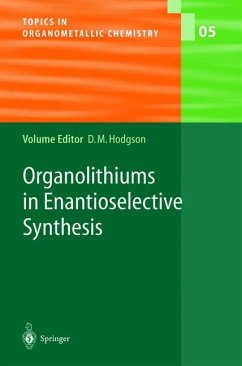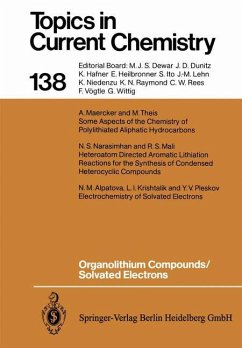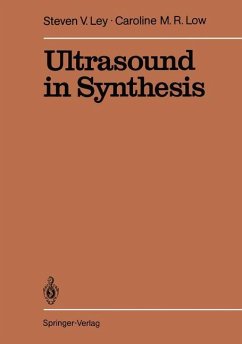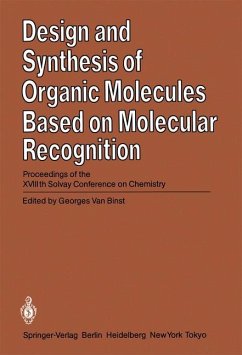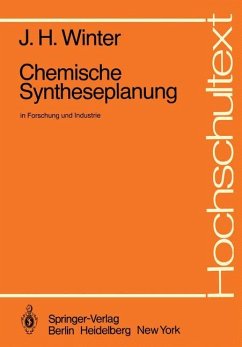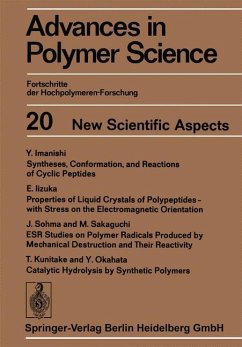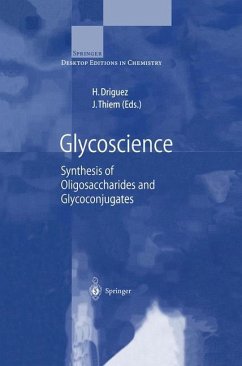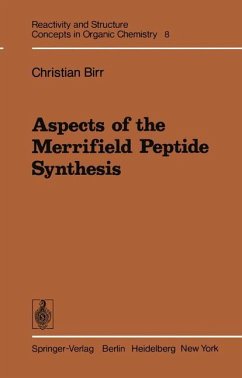
Synthetic and Structural Problems
Versandkostenfrei!
Versandfertig in 1-2 Wochen

PAYBACK Punkte
20 °P sammeln!




Synthetic and Structural Problems
Prof. Chi-Huey Wong received his B.S. and M.S. degrees from National Taiwan University, and Ph.D. in Chemistry from Massachusetts Institute of Technology in 1982. He started his independent career as Assistant Professor of Chemistry at Texas A&M University in 1983, where he became Full Professor in 1987. He has been Professor and Ernest W. Hahn Chair in Chemistry at the Scripps Research Institute since 1989 and is also a member of the Skaggs Institute for Chemical Biology since 1996. Professor Wong is a member of the U.S. National Academy of Sciences and the American Academy of Arts and Sciences. He is a recipient of The Searle Scholar Award in Biomedical Sciences (1985), the Presidential Young Investigator Award in Chemistry (1986), the American Chemical Society A.C. Cope Scholar Award (1993), the Roy Whistler Award of the International Carbohydrate Organization (1994), the American Chemical Society Harrison Howe Award in Chemistry (1998) and the Claude S. Hudson Award in Carbohydrate Chemistry (1999), the International Enzyme Engineering Award (1999) and the Presidential Green Chemistry Challenge Award (2000). He is a member of Academia Sinica, Taipei (1994), the American Academy of Arts and Sciences (1996) and the US National Academy of Sciences (2002). He serves as editor-in-chief of Bioorganic and Medicinal Chemistry and is an executive board member of the Tetrahedron Publications. He was head of the Frontier Research Program on Glycotechnology at RIKEN (Institute of Physical and Chemical Research, Japan) (1991-1999) and is currently a scientific advisor of the Max-Planck Institute, a board member of the U.S. National Research Council on Chemical Sciences and Technology, and is a founding scientist of Optimer Pharmaceuticals, Inc. He is author and co-author of over 450 publications, 60 patents and several books. His current interests are in the areas of bioorganic and synthetic chemistry and biocatalysis, including development of new synthetic chemistry based on enzymatic and chemo-enzymatic reactions, synthetic approach to carbohydrate-mediated biological recognition, design and synthesis of mechanism-based inhibitors of enzymes, RNA and carbohydrate receptors, development of oligosaccharide and aminoglycoside microarrays for high-throughput screening and the study of reaction mechanisms.
Hisashi Yamamoto, born 1943, began his research in Hitosi Nozaki's laboratory at the Kyoto University, Japan. After obtaining his PhD under Elias J. Corey, he joined Toray Industries, Inc., Japan. He has been Professor at the University of Chicago since 2002. Hisashi Yamamoto's work has been widely acknowledged and honored with several academic awards and titles (e.g. Max-Tishler Prize, 1998, Le Grand Prix de la Fondation Maison de la Chimie, 2001, Tetrahedron Chair, 2002). He is on the editorial boards of several outstanding publications including the European Journal of Organic Chemistry and Encyclopedia of Reagents for Organic Synthesi
Hisashi Yamamoto, born 1943, began his research in Hitosi Nozaki's laboratory at the Kyoto University, Japan. After obtaining his PhD under Elias J. Corey, he joined Toray Industries, Inc., Japan. He has been Professor at the University of Chicago since 2002. Hisashi Yamamoto's work has been widely acknowledged and honored with several academic awards and titles (e.g. Max-Tishler Prize, 1998, Le Grand Prix de la Fondation Maison de la Chimie, 2001, Tetrahedron Chair, 2002). He is on the editorial boards of several outstanding publications including the European Journal of Organic Chemistry and Encyclopedia of Reagents for Organic Synthesi
Produktdetails
- Topics in Current Chemistry .106
- Verlag: Springer / Springer Berlin Heidelberg / Springer, Berlin
- Artikelnr. des Verlages: 86223605, 978-3-662-15344-4
- Softcover reprint of the original 1st ed. 1982
- Seitenzahl: 192
- Erscheinungstermin: 17. April 2014
- Englisch
- Abmessung: 244mm x 170mm x 11mm
- Gewicht: 335g
- ISBN-13: 9783662153444
- ISBN-10: 3662153440
- Artikelnr.: 40769343
Herstellerkennzeichnung
Die Herstellerinformationen sind derzeit nicht verfügbar.
Für dieses Produkt wurde noch keine Bewertung abgegeben. Wir würden uns sehr freuen, wenn du die erste Bewertung schreibst!
Eine Bewertung schreiben
Eine Bewertung schreiben
Andere Kunden interessierten sich für






